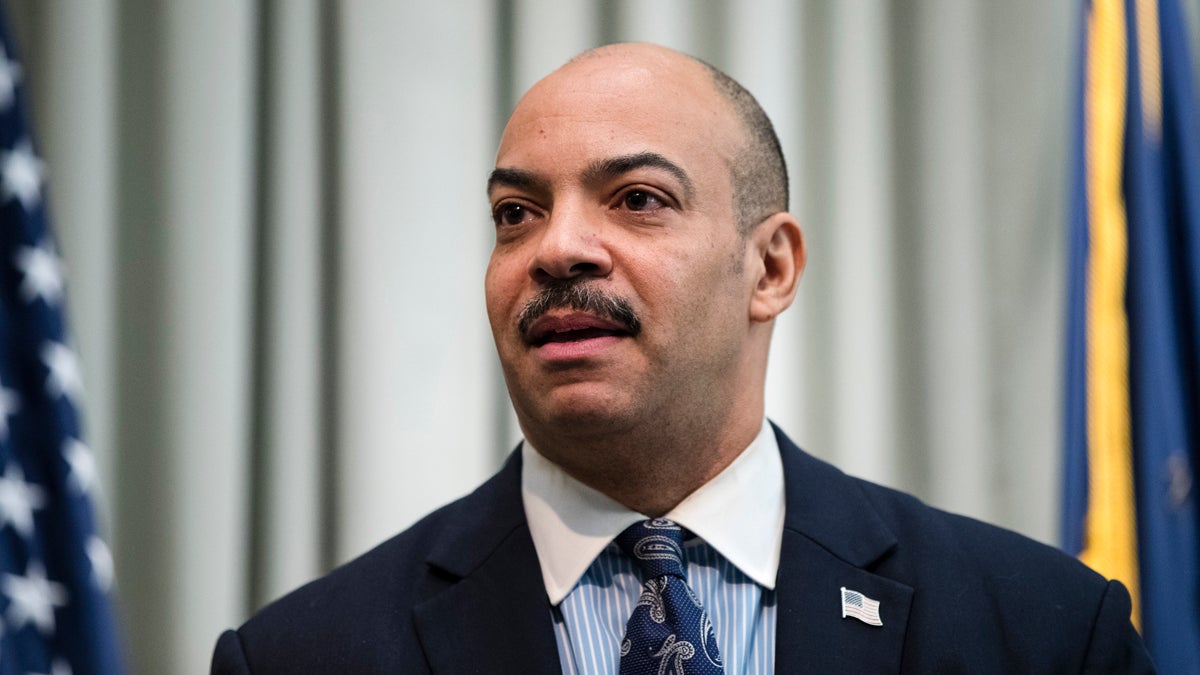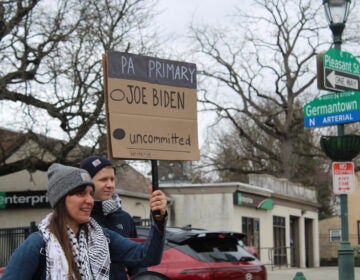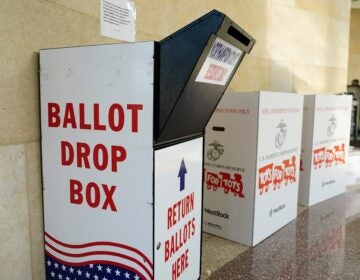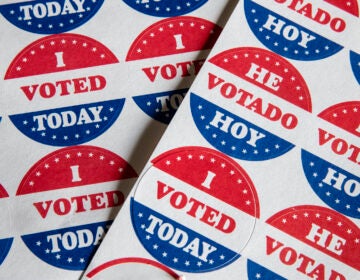Feds admit to spying on Philly DA Seth Williams before indictment

Philadelphia District Attorney Seth Williams pictured here in this Friday, Feb. 10, 2017, file photo during a news conference in Philadelphia (Matt Rourke/AP Photo)
Before indicting Philadelphia District Attorney Seth Williams, federal investigators installed a secret video camera in front of his Overbrook home to spy on him.
That revelation came out in a letter submitted by Assistant United States Attorney Vineet Gauri Friday under the supervision of Attorney General Jeff Sessions. In the letter, Gauri asked the court to do something prosecutors have already sought in their sprawling corruption case against Williams: more time to get through the evidence.
And there’s a lot to review. Hundreds of thousands of emails and droves of other documents. According to Gauri, 2 terabytes of video was recorded from a pole-mounted camera. Sources say it was positioned outside of Williams’ house. Video files that large could add up to 1,000 hours of footage to screen.
Williams’ attorney Thomas Burke would not comment on the placement of the camera, or about what was recorded.
“They have 88,000 documents that they’ve gone through, pole cameras, and everything else. If they had it, they would have indicted him on it. So now what they’re going to do is see if they can add anything on,” Burke said.
Pole-mounted cameras are often used in federal investigations involving alleged drug conspiracies, but the tactic is deployed far less frequently in probes targeting alleged white-collar crime.
Under federal rules, a defendant must be tried no later than 70 days after an indictment, or the case can be dismissed.
It seems odd, Burke said, that prosecutors would file a 23-count indictment against Williams then ask the court for more time to sift through all of the evidence. Processing the evidence, he said, should have happened before filing charges.
“I question the timing of the indictment. In other words, why did they indict in March if they knew it was going to take, you know, 30, or 60, or 90 days to get the discovery together,” Burke said. “It seems like they rushed to get this indictment done.”
In the memo Gauri signed, he noted that allotting more time to deal with a case this complex outweighs the public’s “strong interest” in starting Williams’ trial before the 70-day deadline.
“Particularly in a case of this nature, in which the city’s elected District Attorney faces criminal charge while still in office,” Gauri wrote. “At the same time, the public has an interest in the proper resolution of the charges, and a trial in which both the prosecution and the defense have time for preparation taking into account the exercise of due diligence.”
In a motion responding to Gauri, Burke wrote that the government gave him disks containing the evidence against Williams on Thursday around 6 p.m. “Williams has not been afforded an adequate opportunity to review that discovery,” Burke wrote.
Preparing a defense by the end of May, before which the trial must begin under current rules, is a task that “seems insurmountable,” he said.
He cited the federal prosecution of former state Sen. Vince Fumo, former U.S. Rep. Chaka Fattah and state Sen. Larry Farnese, who all went to trial about a year after being indicted.
“Recent high profile cases involving politicians prosecuted in the Eastern District,” he wrote the court. “Reveal that the public’s right to a speedy trial was not compromised by extending the speedy trial deadline in order to protect the defendant’s right to effectively prepare a defense.”
WHYY is your source for fact-based, in-depth journalism and information. As a nonprofit organization, we rely on financial support from readers like you. Please give today.




